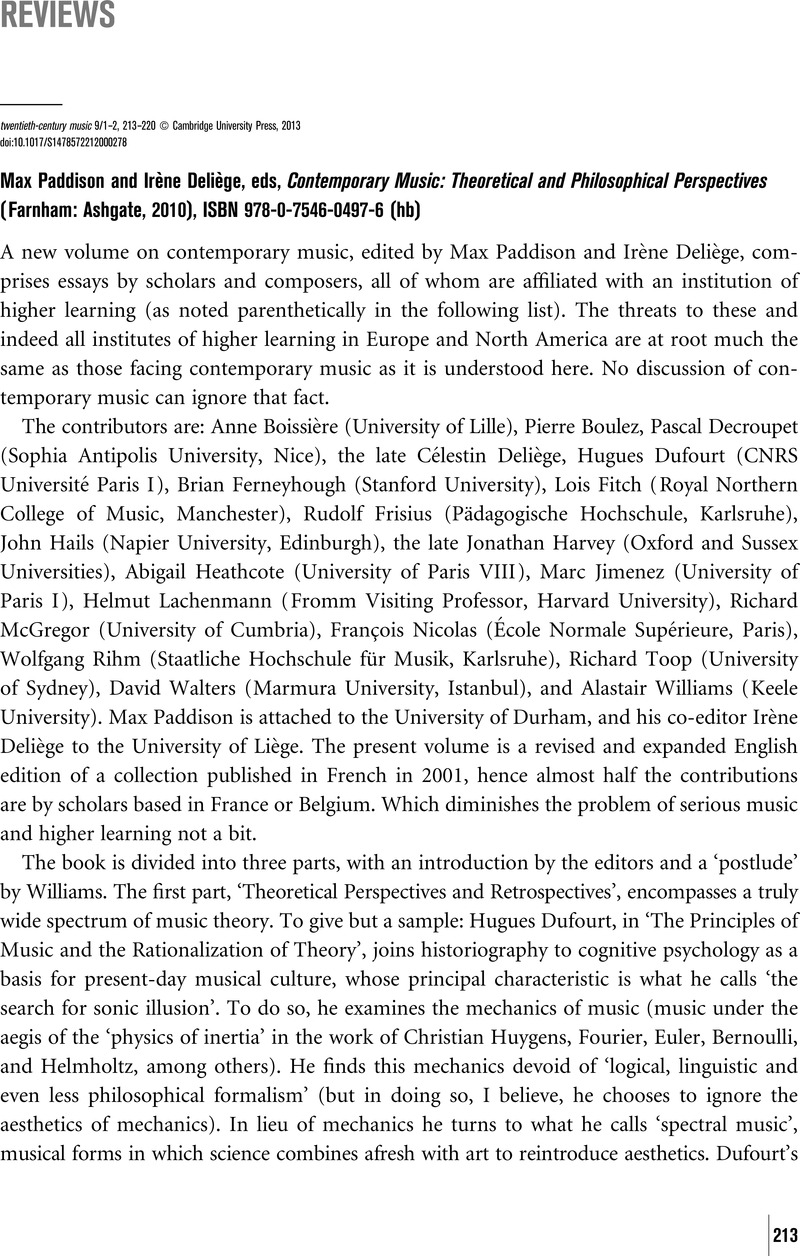No CrossRef data available.
Published online by Cambridge University Press: 27 March 2013

1 See, for instance, Jay, Martin's venerable Marxism and Totality: the Adventures of a Concept from Lukács to Habermas (Berkeley: University of California Press, 1984)Google Scholar.
2 See Adorno, Theodor W., ‘Arnold Schoenberg, 1874–1951’, in Prisms (Cambridge, MA: MIT Press, 1981), 147–72 (p. 149)Google Scholar, and my Friendly Remainders: Essays in Musical Criticism after Adorno (Montreal and Kingston: McGill-Queens University Press, 2011), 9–13.
3 Adorno, , ‘On the Fetish-Character in Music and the Regression of Listening’, in Essays on Music, ed. Leppert, Richard (Berkeley: University of California Press, 2002), 288–317 (p. 295)Google Scholar.
4 Benjamin, Walter, ‘The Storyteller: Reflections on the Works of Nikolai Leskov’, in Illuminations, ed. Arendt, Hannah, trans. Zohn, Harry (New York: Schocken, 1968), 83–109Google Scholar.
5 Citing Arendt, Hannah, The Life of the Mind, vol. 1: Thinking (London: Secker and Warburg, 1978), Chapter 1, p. 19Google Scholar.
6 Schoenberg's reference to the ‘Supreme Commander’ is found in the essay ‘On revient toujours’ (1948), in Schoenberg, Arnold, Style and Idea: Selected Writings, ed. Stein, Leonard (London: Faber and Faber, 1975), 108–10 (p. 109)Google Scholar.
7 Adorno, ‘The Aging of the New Music’, trans. Robert Hullot-Kentor and Frederic Will, in Essays on Music, ed. Leppert, 181–202 (p. 185).
8 See Bryson, Norman, Looking at the Overlooked: Four Essays on Still Life Painting (London: Reaktion Books, 1990), 61Google Scholar.